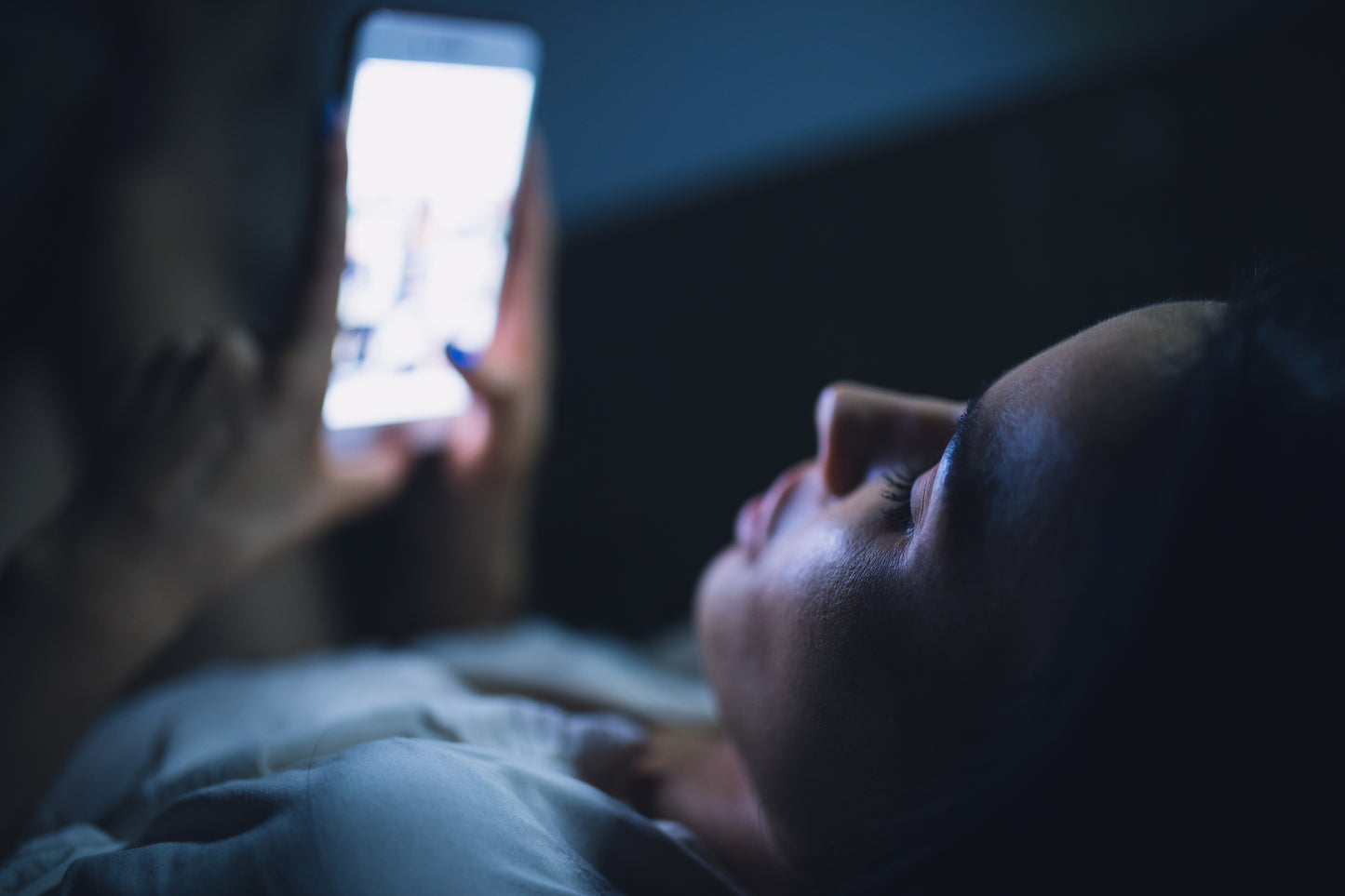
Travel is rough on your body. Jet lag, low-quality plane air, cheap food, general stress, unfamiliar surroundings - it all takes a toll. In this series, we’re covering how to thrive when you travel by staying on top of your sleep, diet, and immunity. In this article, we’ll talk about how to sleep better if you’re away from home.
You don’t have to settle for compromised sleep when you travel. A good night’s rest can make a huge difference in your trip, especially if you fly a lot for business. Here are four ways to sleep like a champ, even when you’re on the road.
1) Sleep better with melatonin (just make sure you use the right dose)

Your pineal gland (nestled in your brain, right between your eyes) produces melatonin in response to light in your environment. When it’s dark around you, your pineal gland takes it as a sign that it’s bedtime and starts releasing melatonin to make you sleepy.
When you travel, though, your internal clock gets messed up. Harsh artificial light, changes in time zone, the stress of travel - all of them can screw with your melatonin production.
Taking a melatonin supplement will make you sleepy almost immediately. It’s powerful and works quickly.
Take note: most melatonin supplements use far too high a dose. A lot of the options you see in stores start at around 3mg. You only need a tenth of that - 0.3 mg - to get all of melatonin’s benefits [1,2]. Higher doses can cause hangover sleepiness and decrease your body temperature, so stick to 0.3 mg [3].
Also, if you’re traveling internationally, know that melatonin is prescription only in:
- UK
- Denmark
- Finland
- Germany
- Luxembourg
- New Zealand
- Norway
- Sweden
Melatonin recommended use: 0.3 mg (300 mcg), taken 30 minutes before bed
Recommended source: Sundown Naturals (no affiliation here; we just like their product)
2) Take magnesium for sleep and travel stress
Magnesium is another potent sleep supplement. It improves sleep quality, sleep duration, cortisol response, and early morning awakening [4].
There are a bunch of different forms of magnesium. The cheapest and most common is magnesium citrate. It works well...but it can also cause diarrhea if you take more than your stomach can handle.
Instead, try magnesium glycinate. It has good bioavailability and won’t cause an upset stomach.
Magnesium glycinate recommended use: 400 mg, taken 30 minutes before bed
Recommended source: Doctor’s Best (again, no affiliation. Just an awesome product)
3) Kava for relaxed focus and late-night work

Kava is a member of the pepper family that’s native to the Pacific Islands. It contains kavalactones, potent compounds that decrease anxiety and promote relaxation [5,6]. And while most calming compounds make you groggy, kava does not - it preserves cognitive function, giving you relaxed clarity that’s perfect for working late at night. You’ll stay sharp until bedtime and fall asleep with ease.
You can take kava as an extract or as a tea. Either one works.
Two quick notes on kava:
- Kavalactones are also analgesics (pain relievers). Kava may make your mouth go numb for a few minutes after you take it. Don’t worry; it’ll pass, and it’s actually a sign of quality kava.
- A few years back, kava was banned in several countries after reports of it causing liver toxicity. The bans have since been lifted. It wasn’t the kava; it was a quality control issue that is now regulated, and kava has been deemed safe for both short- and long-term use [7,8,9].
Kava recommended use: 1-3 teabags or 150-300mg kava extract, 1-2 hours before bed. Take it with a fat source to increase absorption.
Recommended source: Yogi kava tea or Gaia Herbs kava extract
4) Get rid of sleep-disrupting blue light

Blue light - the most abundant light in most electronics and indoor lighting - suppresses your melatonin levels and screws with your sleep quality [10,11,12] (interesting side-note: this happens even if you’re blind [13]).
First things first, minimize blue light after the sun goes down. That includes electronics. If you’re working late on your computer, download f.lux. It’s a free app that filters blue light from your monitor after sunset, letting you keep working without messing up your sleep.
And when you do actually go to bed, make sure your room is dark. We’re talking “I can’t see my hands in front of my face” dark. Most hotels have room-darkening shades, which is a good start, but for the best sleep, you’ll want to go a step further. Pack a small roll of electrical tape when you travel and put it over all the blinking, flashing things in your room. The alarm clock, the cable box, the internet router - tape them all. It seems insignificant, but those little light sources can mess with your circadian rhythm.
Don’t believe us? Try going to bed in a totally blacked out room tonight. You’ll be amazed by how much better you sleep.
What else do you do to sleep better when you travel? How did these things work for you? Let us know in the comments. Thanks for reading!
And if you're struggling to eat healthy while traveling, check out one of our favorite guides on planning for that! Link Here

Spot on advice – glad to see smart and not faddish knowledge sharing here.